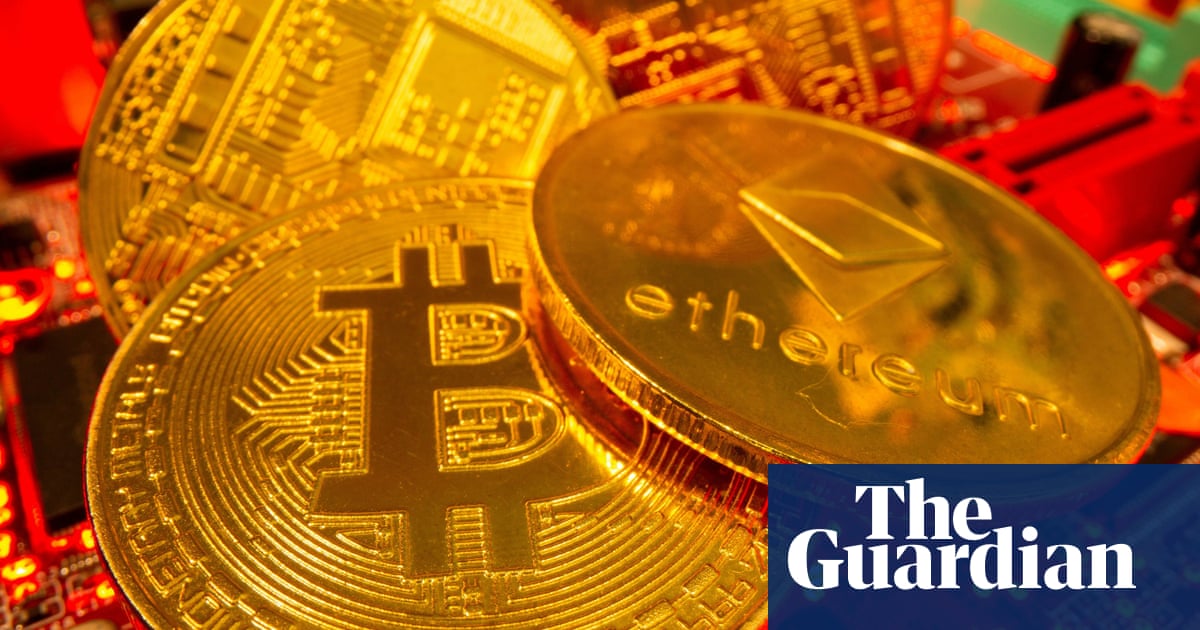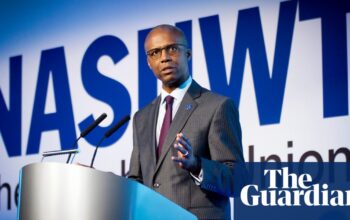
A banker from Russia, who has been sanctioned, has recently sold over £15m worth of shares in a cryptocurrency company that is headed by former UK chancellor Philip Hammond. This transaction may have caught the attention of US sanctions regulators, according to experts.
It is reported that the leadership team at Copper Technologies, located in London, became worried after one of the company’s shareholders, Mikhail Klyukin, was added to the United States’ sanctions list in March 2022.
Klyukin faced sanctions for his position on the supervisory board of Sovcombank, a Russian financial institution, as the US aimed at punishing “close associates of Vladimir Putin” following the invasion of Ukraine.
According to The Guardian, Copper, which has a branch located in New York, assisted in organizing a deal aimed at removing Klyukin from their list of shareholders.
This transaction brings up new concerns regarding the use of cryptocurrency and the level of transparency in commonly obscure payment methods. As Western governments increase their scrutiny of crypto in an effort to enforce sanctions against Moscow, the issue becomes more pressing. Copper specializes in creating and overseeing digital platforms for businesses looking to invest, trade, or utilize cryptocurrency.
According to the Guardian, the company stated that it always followed relevant laws regarding sanctions, as advised by external legal counsel.
It seems that copper played the role of a middleman between Klyukin and a company that was interested in purchasing the shares of the Russian banker.
According to sources, the cryptocurrency firm received payment in British pounds from the purchaser, who paid over £15 million for the shares. The company then exchanged the pounds for cryptocurrency and sent the digital assets to 46-year-old Klyukin.
The sale of shares seems to have been planned in order to prevent violating US sanctions. These sanctions prohibit the use of dollars or the participation of American citizens in financial transactions with individuals who are under sanctions.
The United States does not have control over the utilization of foreign currencies or the business transactions of foreign individuals.
According to legal professionals, Copper may have faced “secondary” penalties if US officials were aware of its involvement in a transaction that benefited a Russian individual under constraints.
The US has the power to impose secondary sanctions on companies or individuals who are not under its jurisdiction, if their actions are seen as undermining US sanctions. This may result in penalties such as being barred from the US financial system.
The addition of using cryptocurrency as a method of transferring funds to Klyukin could have made the situation worse, according to their statement.
In April 2021, US President Joe Biden issued an executive order banning the use of deceptive or structured transactions to evade US sanctions, including those involving digital or physical assets.
According to a legal specialist in sanctions, caution should be exercised whenever there is a notice regarding sanctions.
“The enforcement of sanctions by the US is aggressive, and currently, Russia is taking a strong stance. If a method is devised where a sanctioned individual receives payment through a currency workaround, there is still a significant amount of risk involved.”
According to them, the most sensible course of action would have been to halt the trading of shares instead of permitting their sale.
Another professional stated that the deal presented a potential danger due to the US’s expansive interpretation of their jurisdiction. They also stated, “I would have recommended against it.”
In May 2022, Klyukin, who held a high position at Sovcombank, one of Russia’s largest lenders, participated in a share sale. By March 2022, he was already under sanctions by the US due to his role at the bank. In September 2022, the UK Foreign Office also sanctioned him, citing his involvement with the Russian government as a reason for the sanction. This was after the completion of the share sale.
He has stepped down from his position as a member of the supervisory board at Sovcombank.
Copper refuted any claims that it served as a “middleman” in the sale of shares.
A representative for Copper stated that the company places great importance on continuously adhering to relevant regulations and requirements regarding anti-money laundering, regulatory measures, and sanctions.
They stated that the purpose of the mentioned transaction was to sell shares in Copper that were owned by a company affiliated with a person who was under sanction.
After careful consideration and consultation with external experts, we have determined that the transaction aligns with all relevant sanctions regulations and this is still the case presently.
Insiders familiar with Klyukin’s affairs stated that his businesses had abided by US sanctions, particularly in regards to the transaction involving the sale of Copper shares.
after newsletter promotion
In January 2023, Hammond took on the role of chair for the company, having previously been an advisor during the transaction. Prior to this, the Conservative member had held positions as defence secretary, foreign secretary, and chancellor of the exchequer from 2011 to 2019. He also became a member of the House of Lords in 2020.
He held a position in the company that granted him a 0.5% ownership, estimated to be worth up to $15 million (£12 million) before the value of cryptocurrencies decreased.
It has been reported that Hammond was not aware of the sale of shares initially, but was later notified during a review of significant shareholders.
According to informants, the Guardian was informed that only a small number of employees at Copper were aware of the shareholder’s identity. The shareholder, who owned a stake through a company based in Cyprus called Zayelco Ltd., had been subjected to sanctions.
The sale of Zayelco’s shares is recorded in official filings with Companies House. The Guardian has confirmed that the company was owned by Klyukin, who also holds a passport from Cyprus.
In June 2022, legal papers submitted in the United States regarding a separate disagreement regarding a real estate project reveal that Klyukin was the sole owner of Zayelco.
In 2015, a different trust document obtained by the Guardian identified Klyukin as the “owner” of Zayelco.
According to a document filed with Companies House, Zayelco owned 3,611,000 common shares and 960,000 class B shares in Copper as of October 2021.
In May 2022, a second submission was made, shortly after Klyukin divested his shares, revealing that Zayelco’s ownership was reduced to zero.
Wagmi Investments Ltd, a separate entity from a similarly named UK business, acquired two identical blocks of shares.
The former chancellor has expressed support for copper, but UK financial regulators remain doubtful.
In a report earlier this year, the Financial Times stated that Copper had joined a gathering with representatives from the Treasury following a phone conversation between Hammond and John Glen, who was then the Treasury secretary. Hammond clarified that he did not initiate the meeting.
During the call, Copper was dealing with challenges related to regulations.
The team faced challenges in getting the necessary approval from the Financial Conduct Authority in order to operate. They ultimately decided to withdraw their application and instead obtained a license to conduct business in Switzerland.
The larger worldwide decline of cryptocurrencies has also affected the company, resulting in significant job cuts this year.
The economic decline, along with Copper’s inability to acquire a license in the UK, is believed to have impacted the worth of “growth shares” owned by top employees such as Hammond.
Hammond strongly supports the adoption of digital assets in the UK. In a statement earlier this year, he expressed concern over Britain’s delay in establishing regulations for cryptocurrency, calling it “quite shocking” in comparison to other nations.
Source: theguardian.com


